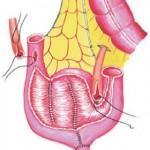Video: Bimanual Examination Of The Retrieved Specimen And Regional Hypothermia During Robot-Assisted Radical Prostatectomy: A Novel Technique For Reducing Positive Surgical Margin And Achieving Pelvic Cooling
Bimanual examination of the retrieved specimen and regional hypothermia during robot-assisted radical prostatectomy: a novel technique for reducing positive surgical margin and achieving pelvic cooling
Wooju Jeong, Akshay Sood, Khurshid R. Ghani, Dan Pucheril, Jesse D. Sammon, Nilesh S. Gupta*, Mani Menon and James O. Peabody
Vattikuti Urology Institute and *Department of Pathology, Henry Ford Health System, Detroit, MI, USA
OBJECTIVE
To describe a novel method of achieving pelvic hypothermia during robot-assisted radical prostatectomy (RARP) and a modification of technique allowing immediate organ retrieval for intraoperative examination and targeted frozen-section biopsies.
PATIENTS AND METHODS
Intracorporeal cooling and extraction (ICE) consists of a modification of the standard RARP technique with the use of the GelPOINT™ (Applied Medical, Rancho Santa Margarita, CA, USA), a hand access platform, which allows for delivery of ice-slush and rapid specimen extraction without compromising pneumoperitoneum.
RESULTS
The ICE technique reproducibly achieves a temperature of 15 °C in the pelvic cavity with no obvious body temperature change. Adopting this technique during RARP, there was an absolute risk reduction by 26.6% in positive surgical margin rate in patients with pT3a disease when compared with similar patients undergoing conventional RARP (P = 0.04).
CONCLUSIONS
The ICE technique eliminates the potential handicap of decreased tactile sensation for oncological margins, especially in the high-risk patients. This technique allows the surgeon to immediately examine the surgical specimen after resection, and with the aid of frozen-section pathology determine if further resection is required. A prospective trial is underway in our centre to evaluate the effects of this novel technique on postoperative outcomes.



